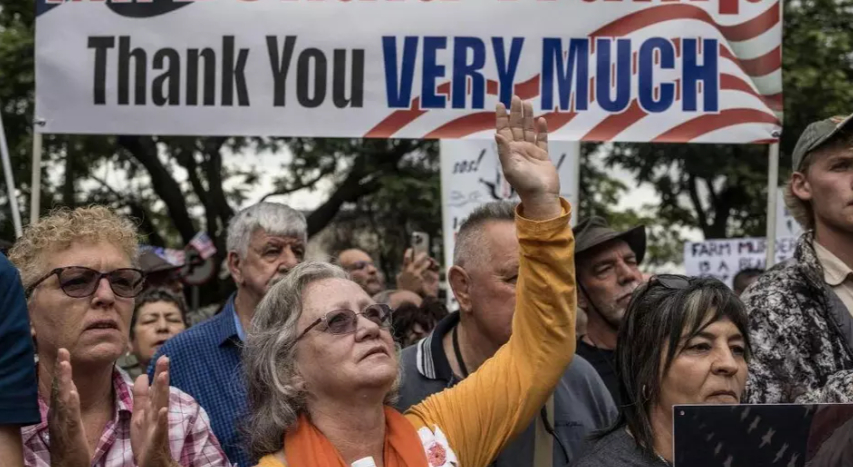Move that’s raising eyebrows across both continents, the first wave of White South Africans granted refugee status under a special U.S. initiative is en route to the United States. The group, consisting of 49 Afrikaners—mostly families along with several young couples and older individuals—departed Johannesburg’s OR Tambo International Airport on Sunday. Their journey includes a stop in Dakar before landing in Washington, D.C., and finally heading to Texas.
The U.S. chartered flight marks the beginning of a highly unusual refugee effort authorized by President Trump earlier this year. The headline-grabbing initiative fast-tracks refugee resettlement for Afrikaners, an ethnic group descended from Dutch and other European settlers in South Africa. Trump’s executive order, issued in February, cited “race-based discrimination” against White South Africans, drawing from claims that land reforms in South Africa are targeting them unfairly—a narrative echoed by conservative voices, including South African-born billionaire Elon Musk.
According to South African officials, the refugee application explicitly identified the passengers as Afrikaners seeking safety in the U.S. “The application for the permit said it’s the Afrikaners who are relocating to the USA as refugees,” said Collen Msibi, spokesperson for South Africa’s Transport Ministry.
The American State Department confirmed that its embassy in Pretoria has been actively interviewing applicants under Trump’s directive. Despite the controversial nature of the program, officials say they’ve seen a steady stream of inquiries and have prioritized Afrikaners who say they are victims of racial discrimination.
What stands out is the speed of the process. While typical refugee applications can take up to two years due to intensive background checks, health screenings, and interviews, this group’s cases were processed in just a few months—or even weeks.
Meanwhile, relations between the U.S. and South Africa have deteriorated sharply. Washington expelled South Africa’s ambassador in March, and Pretoria has pushed back hard against the U.S. narrative. South Africa’s government maintains there’s been no state-sponsored discrimination or forced land seizures and argues the refugee program is a political tool designed to undermine its democratic system.
Still, the Trump administration has made it clear it will offer a “rapid pathway” to citizenship for White South African farmers who choose to leave. This stands in stark contrast to the broader U.S. refugee policy, which has sharply limited asylum for other groups around the world since Trump returned to office.
As this group prepares to start a new chapter in America, the story continues to stir heated debates about race, policy, and who qualifies for protection under U.S. refugee law.











